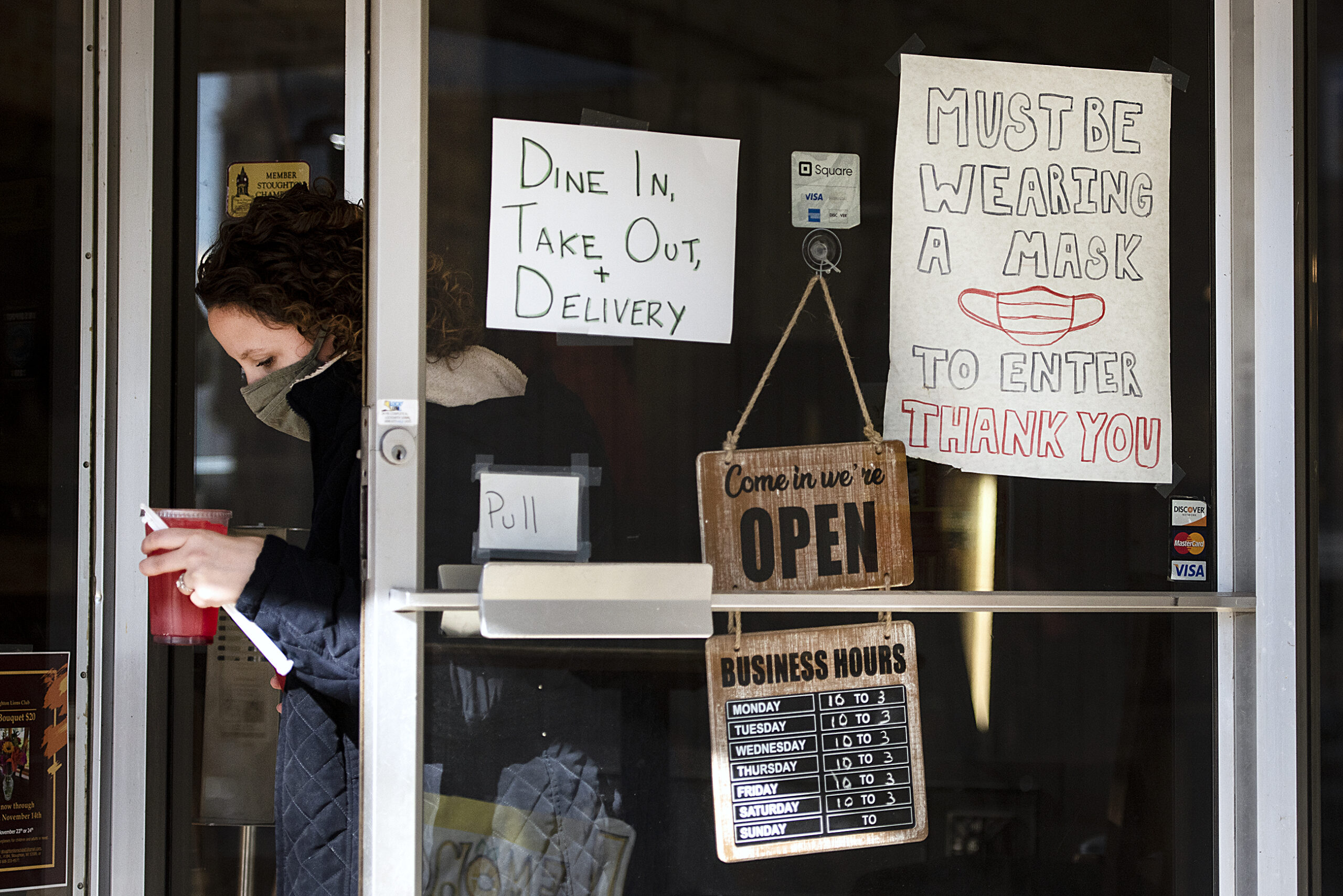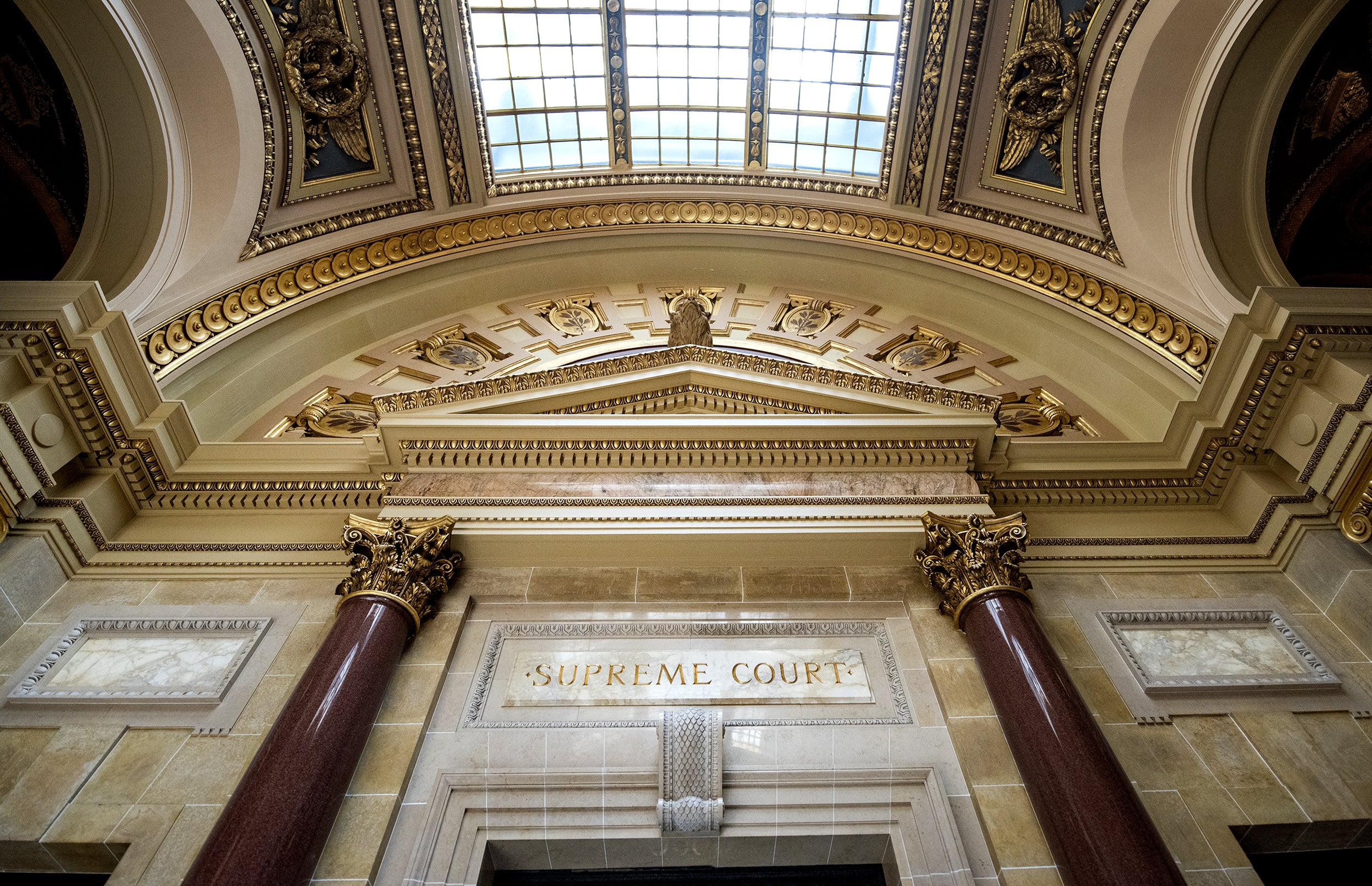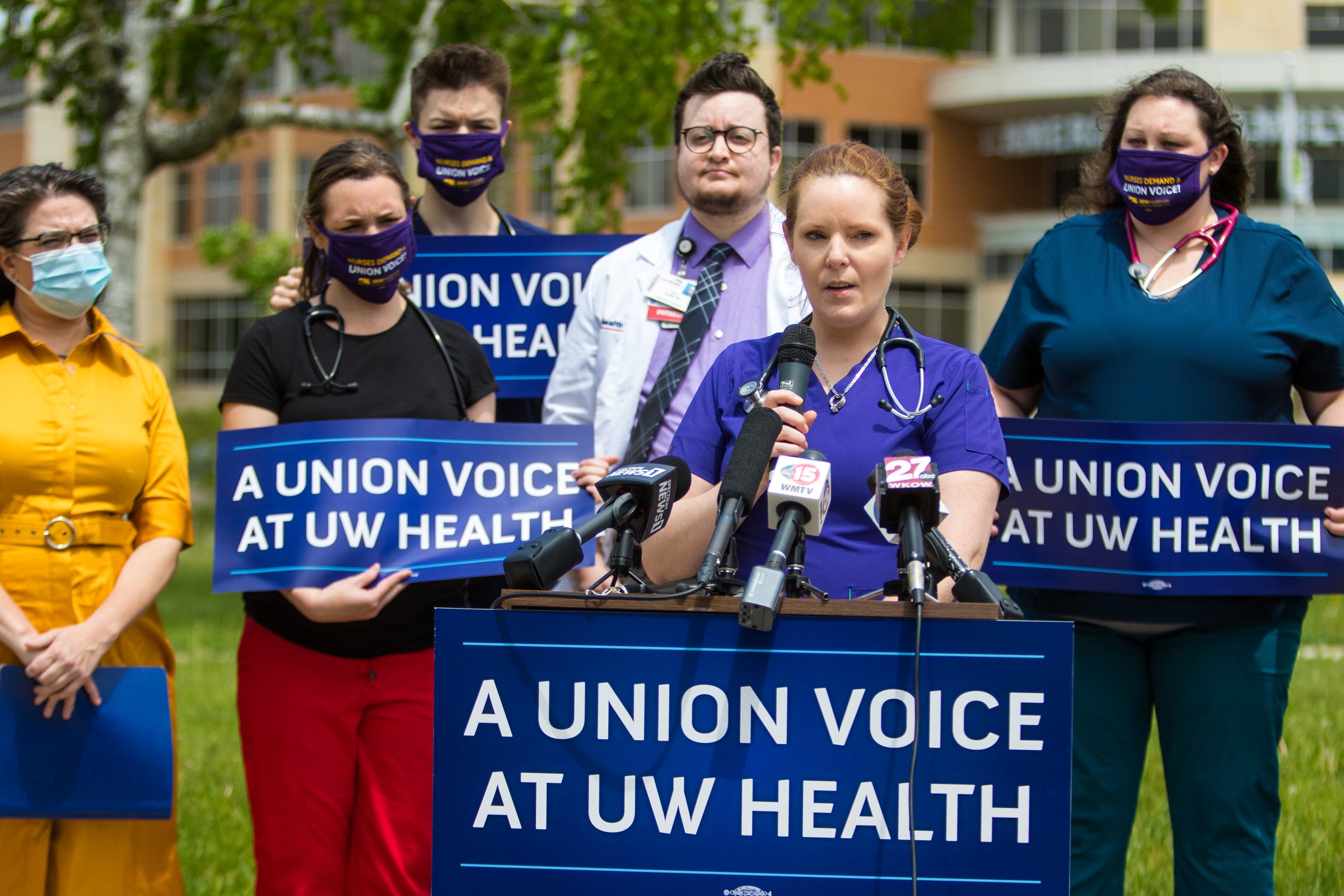The Wisconsin Supreme Court further whittled away state government’s public health emergency powers Wednesday, ruling Gov. Tony Evers’ administration overstepped its authority last year when it tried to restrict bar and restaurant capacity to slow the spread of COVID-19.
It is the third time the court has ruled against the Evers administration’s efforts to address the coronavirus pandemic and the second time in just the past month.
Former state Department of Health Services Secretary Andrea Palm issued the restrictions in question on Oct. 6, citing a surge in COVID-19 cases that made Wisconsin one of the nation’s hotspots. While the order included myriad exemptions, it limited businesses like bars and restaurants to 25 percent of their usual indoor capacity.
News with a little more humanity
WPR’s “Wisconsin Today” newsletter keeps you connected to the state you love without feeling overwhelmed. No paywall. No agenda. No corporate filter.
While Palm’s order was far more limited than the “Safer at Home” order the state Supreme Court struck down in May, it relied on the same set of laws. In its 4-3 ruling handed down Wednesday, the court’s conservative majority said that meant the order needed to be advanced as an “emergency rule,” meaning it needed the Legislature’s approval.
The majority ruling was written by Chief Justice Patience Roggensack and joined by conservative Justices Annette Ziegler and Rebecca Bradley.
Conservative swing Justice Brian Hagedorn sided with the Evers administration when the court struck down “Safer at Home,” but he ruled against the administration this time. Hagedorn wrote a concurring opinion siding with the court’s majority Wednesday.
“Some details have changed, but this case arises because Palm issued another order doing exactly what this court said she may not do: limit public gatherings by statewide order without promulgating a rule,” Hagedorn wrote. “Respect for this court and its authority compels me to stand by that decision today.”
The court’s liberals dissented, led by Justice Ann Walsh Bradley.
“At a time when public health experts are imploring pandemic-weary Wisconsinites to stay vigilant, a faulty statutory analysis once again leads this court to undermine public health measures,” she wrote.
In addition to Wednesday’s decision and the May ruling that struck down the stay-at-home order, justices also ruled against Evers last month, striking down the public health order he used to issue Wisconsin’s statewide mask mandates.
While the majority’s ruling Wednesday was relatively straightforward, this case took a circuitous path on its way to the state Supreme Court.
The Evers administration’s order took effect Oct. 8 and was originally scheduled to end Nov. 6.
The Tavern League of Wisconsin filed a lawsuit against the order Oct. 13, arguing it would lead to “economic ruin” for its members.
The first judge to hear the case, Sawyer County Judge John Yackel, sided with the Tavern League almost immediately after the lawsuit was filed, issuing a temporary restraining order Oct. 14 that blocked the limits on crowd capacity.
After the case was reassigned, Barron County Circuit Court Judge James Babler sided with the Evers administration, reinstating the limits on gatherings Oct. 19.
The Tavern League did not appeal that ruling, but a new group of plaintiffs did. They included The Mix Up, Inc., a bar and grill in Amery, northwest of Eau Claire, as well as Liz Sieben, the business’ owner. They also include the group Pro-Life Wisconsin and its president, Daniel Miller.
The attorney for The Mix Up, Inc., Misha Tseytlin, is a former Wisconsin solicitor general who served in the state Department of Justice under former Attorney General Brad Schimel. As a private attorney, Tseytlin has worked extensively for GOP lawmakers on a wide array of high-profile cases.
On Oct. 23, Wisconsin’s District 3 Court of Appeals again blocked the order on the grounds that plaintiffs were likely to win on appeal.
While the capacity restrictions were effectively moot by the time the Wisconsin Supreme Court issued its decision, the ruling could have implications for future public health orders.
Evers’ administration had hoped to thread the legal needle with its restrictions on crowd capacity, using powers it argued the state Supreme Court didn’t touch in its ruling that struck down Wisconsin’s stay-at-home order. Those included part of a law that gives DHS the power to “forbid public gatherings in schools, churches, and other places to control outbreaks and epidemics.”
Beyond that, the court’s makeup had changed since it ruled on “Safer at Home.” A 5-2 conservative majority has been trimmed to 4-3, putting the spotlight on Hagedorn.
But on Wednesday, Hagedorn said that while his objections to the court’s legal analysis were “no secret,” he was legally compelled to stand by the court’s previous ruling.
“Creative efforts to engineer a different result from an indistinguishable set of facts would, in my view, be a departure from basic principles of judicial decision-making,” Hagedorn wrote.
The trio of rulings from the court don’t technically prohibit the state from issuing future orders dealing with the COVID-19 pandemic, but they all have one thing in common: They require the Legislature to be involved.
That’s unlikely to happen given the current makeup of state government, where Evers, a Democrat, and GOP lawmakers have grown increasingly far apart in their views of how to the pandemic.
Wisconsin Public Radio, © Copyright 2025, Board of Regents of the University of Wisconsin System and Wisconsin Educational Communications Board.







